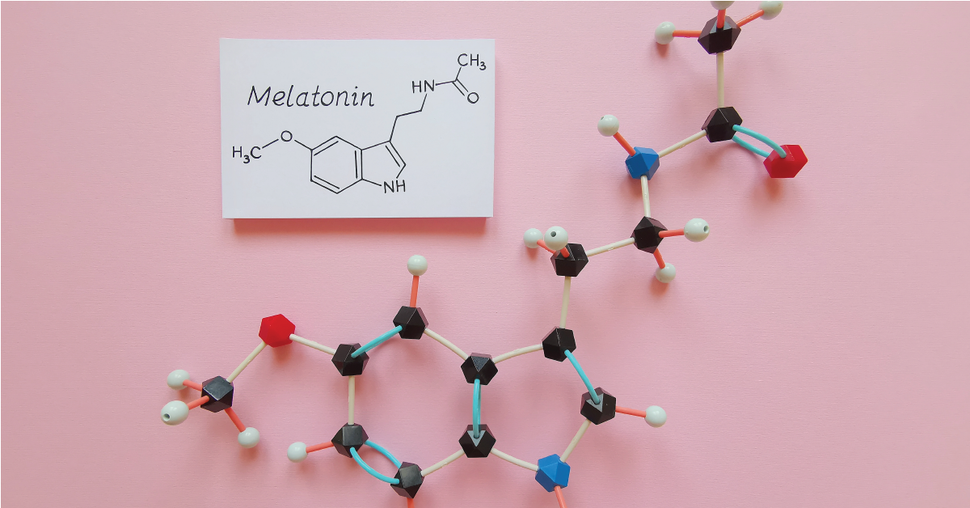How to Increase Melatonin
15 Dec 2020
How to Increase Melatonin Naturally?
Introduction
Sleep has been one of the biggest casualties of urbanization and our modern lifestyles, as most city dwellers tend to get inadequate sleep. Many of us also suffer from disturbed or poor-quality sleep and insomnia. Although we may have come to regard these problems as the new normal, they can have serious consequences. In the short term, sleep deprivation can affect your mood, performance, and energy levels and in the long term, it can increase your risk of depression, anxiety disorders, diabetes, and hypertension. This is why melatonin has come to be so important.
This naturally occurring hormone, which is produced in the pineal gland makes it easier to drift off to sleep at night. Although melatonin is present in our bodies throughout the day, its production is influenced by the circadian rhythm or day-night cycle, with levels peaking at night. The hormone is produced by the pineal gland and is distributed throughout the body via the bloodstream, sending out signals that it’s time to wind down. In addition to improving sleep quality, melatonin is also important for the health of your immune system, mental health, and other bodily functions. So, it helps to do all you can to increase melatonin production.
How to Boost Melatonin Production?
1. Limit Screen Time
The problem with digital screens and melatonin production is that these devices emit blue light. Although exposure to blue wavelengths from sunlight is natural and beneficial during the day, this type of light can be disruptive at night. Studies clearly demonstrate that exposure to blue light from digital devices like computer monitors and cell phones suppresses melatonin production, which adversely affects your sleep (1). The best thing you can do to improve melatonin production is to limit exposure to such devices after sunset and to take supplements containing Lutein and Zeaxanthin, as they are known to reduce the harmful effects of blue light.
2. Dim The Lights
For many of us, it’s a matter of pride to say that we live in a city that ‘never sleeps’. Unfortunately, the constant exposure to bright city lights interferes with melatonin production and disrupts the sleep cycle. Even when indoors, we are constantly exposed to artificial lighting that is completely out of sync with nature. To help boost melatonin production, make it a point to dim your lights from the evening, but go even further. Make sure that there are no devices emitting light in your bedroom and try to install blackout curtains. This can help drastically as researchers have found that artificial lighting can even suppress melatonin production in individuals who suffer from total blindness (2)!
3. Eat Melatonin-Rich Foods
Most people don’t realize that melatonin can also be obtained from food sources. However, there are quite a few foods that contain melatonin, and consuming these foods a few hours before bedtime should help to increase melatonin production. Some of the best choices would include a glass of milk, chamomile tea, a handful of almonds, fish like tuna, eggs, tart cherries, and goji berries to name a few. Just make sure that you don’t turn it into a heavy meal as late-night meals can also impair sleep quality and cause trouble falling asleep.
4. Take Melatonin Supplements
One of the simplest ways to increase melatonin levels in the body is by taking melatonin supplements. Melatonin supplements are regarded as safe and effective when taken in the recommended dosage. In fact, melatonin is commonly used as a treatment for insomnia in older adults across the EU. For supplementation to work as desired, it’s best to stick to a dosage of about 5 mg shortly before bedtime. Some experts also suggest taking the supplement earlier in the evening so that levels spike and then start to decline, triggering the pineal gland to produce more melatonin.
5. Increase Tryptophan Intake
Although most of us have heard of melatonin, few recognize the importance of tryptophan. This amino acid is essential for the production of melatonin and can be obtained from a variety of dietary sources. Tryptophan from your diet is used to produce serotonin, which your body then converts to melatonin. In fact, many of the same foods that contain melatonin like milk, fish, nuts, and turkey are also rich sources of tryptophan. Other good sources of tryptophan include pumpkin seeds, red meats, and beans.
6. Try Meditation
Stress and anxiety are known to be impediments to sleep, which is why meditation is so popular as a sleeping aid. It promotes relaxation and makes it easier to fall asleep. However, meditation isn’t just calming for the mind. Research suggests that the practice can also boost melatonin levels in the body, which is another reason for its efficacy as a natural sleeping aid (3). However, it should be noted that meditation is most effective for sleep when practiced regularly and shortly before bedtime.
7. Cut Back on Alcohol
Alcohol is the most popular sedative and we often turn to it as a sleeping aid – or so we tell ourselves. However, downing shots of tequila or kahlúa is the worst thing you can do if you’ve been wondering ‘how to increase melatonin levels naturally’. Despite the fact that alcohol may be a sedative and can induce sleep, it is known to also impair sleep, making you more likely to suffer from disturbed and poor-quality sleep. This is because alcohol consumption suppresses the production of melatonin in your body, directly impairing sleep.
Recommended Reads:
https://www.setu.in/blogs/supplements/can-melatonin-help-manage-anxiety/
https://www.setu.in/blogs/lifestyle/the-best-and-worst-sleep-positions-for-you/
https://www.setu.in/blogs/lifestyle/busting-myths-4-rumours-around-melatonin/
https://www.setu.in/blogs/lifestyle/how-to-sleep-fast-at-night-without-thinking/
https://www.setu.in/blogs/habits/this-is-what-sleeping-well-really-does-to-your-body/
Skin: Renew - Glutathione - Orange Flavour
- ₹1,994
- ₹1,994
-
₹2,600 - ( 23% OFF)
Categories
- Choosing a selection results in a full page refresh.
- Press the space key then arrow keys to make a selection.
this is the sidecart











